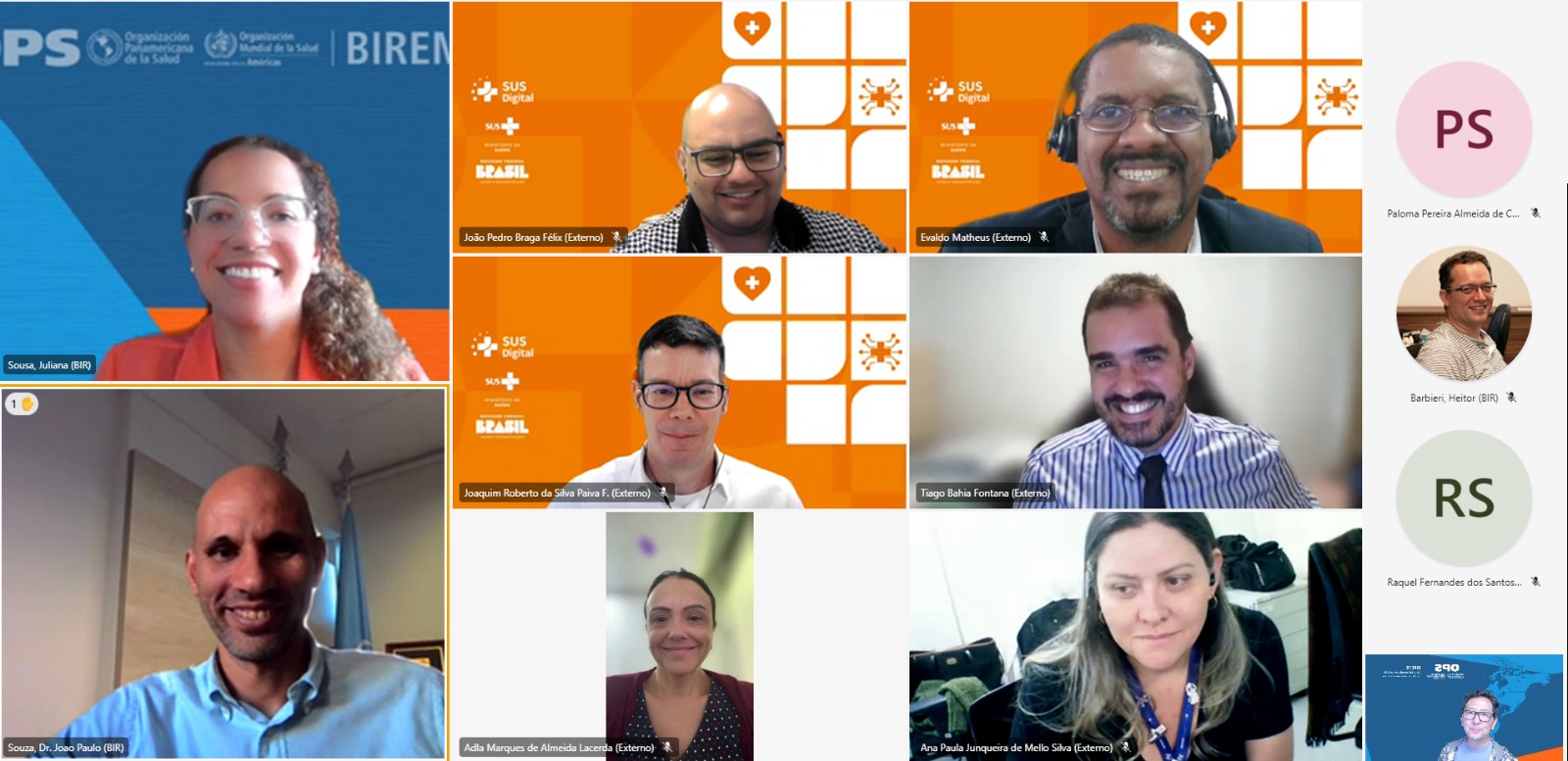
The Latin American and Caribbean Center on Health Sciences Information (BIREME/PAHO/WHO), in partnership with the Department of Digital Health and Innovation of the Secretariat of Information and Digital Health of the Brazilian Ministry of Health (DESDI/SEIDIGI/MS), has begun a new technical cooperation under Term of Cooperation TC157. The agreement marks a significant step forward in the implementation of digital technologies to strengthen the Unified Health System (SUS) by updating and improving the Second Opinion Formative Program (SOF) and other strategic initiatives. The launch meeting for the project’s activities was held online on June 10, with the participation of representatives from the counterparts involved.
Origin and importance of SOF
SOF are clinical consultancies in the form of questions and answers originating from telehealth programs. A question becomes a SOF only if it meets specific criteria that guarantee its relevance and applicability. Under development since 2007 in the context of the Telehealth Brazil Networks Program, they address priority issues in primary health care and other topics relevant to SUS. Each SOF is based on high-quality evidence and organized according to a predefined model. The consultancies are reviewed by experienced professionals before being indexed and published in the Virtual Health Library Primary Health Care (PHC VHL). There are currently 1,636 SOF available. According to the Director of BIREME, João Paulo Souza, “this set has the potential to answer around 70% of the most recurring doubts and needs of health professionals, expanding the ability to resolve similar cases”.
Innovations and improvements to update the SOF Program
The project aims to update the information program (SOF), integrating advanced digital technologies to improve continuing education and the health decision-making process for SUS professionals and users. Resulting from a technical cooperation between BIREME and SEIDIGI, the initiative seeks to develop innovations in health, exploring automation resources in the development of SOF and its derivatives, particularly conversion to lay language and multiple formats, with agile, multi-device, scalable and contextualized updating according to the thematic area and application in the line of care within its scope. It also aims to significantly improve the SOF database, both in quantitative and qualitative terms. To this end, according to Juliana Sousa, BIREME’s Digital Solutions Supervisor, “all SOF that are currently indexed and published in the PHC VHL will be revised and adapted to the new scientific and technological format”.
One of the project’s goals is to implement search engines using natural language models, aiming to facilitate access to and understanding the information contained in the SOF. “The proposal is for the new version of the SOF program to contain attributes compatible with the state of the digital transformation underway, especially personalization, the use of real-time data, mobility, interconnectivity, automated processes that facilitate collaborative work, the use of artificial intelligence, and investment in data security,” highlighted Juliana.
Strengthening the use of scientific evidence to support decision-making by communities and the lay public is one of the priorities of the Pan American Health Organization (PAHO), aligned with the BIREME 2023-2025 Strategy and the Center’s current work plan. Director João Paulo highlighted, finally, that the Brazilian experience could favor the internationalization of the SOF model, allowing it to be adopted by other Ministries of Health in the Latin America and Caribbean Region.
Strengthening digital health
For the Ministry of Health, the results of the technical cooperation project to update the SOF Program will strengthen the “Digital SUS” program, in its Strategic Action Line in Telehealth (Ordinance GM/MS No. 3,691, of May 23, 2024), which replaces and redesigns the Telehealth Brazil Network program, expanding the types of assistance services available via telehealth in the SUS from three to nine.
At the project’s launch meeting, the general coordinator of Strategic Health Information Management at the Ministry of Health’s Department of Monitoring, Evaluation and Dissemination of Strategic Health Data and Information (DEMAS/MS), João André Santos de Oliveira, recalled his participation as the person technically responsible for teleconsultations at the State Family Health Foundation in Bahia: “When we built the Bahia Telehealth Center from scratch in 2013, we were engaged in producing SOF, and we even contributed to the production of some SOF. Therefore, it’s great to see a project underway today with SOF being developed, improved and qualified.”
Also, from DEMAS/MS, the general coordinator for the Dissemination and Integration of Health Data and Information, Thiago Bahia Fontana, agreed: “Yes, it’s very gratifying, because we paved the way. We faced several challenges, because it wasn’t the culture. We had to dialog with a diversity of technical perspectives in the territory of more than 3,300 family health teams. It’s good to see that today, with existing technology, we can make better use of all this production. New technologies can enhance the content, for example, with generative artificial intelligence, making it as if it were a dialog, based on a secure and validated database of clinical information”.
Schedule and Risk Management
The project schedule covers six semesters, with developments and deliveries planned until the end of 2026. A Risk Management plan has been drawn up to ensure effective monitoring of progress and mitigation of any challenges. All the work will be monitored in detail by the Steering Committee specifically created for this project, as well as representatives from BIREME/PAHO/WHO and the Ministry of Health.